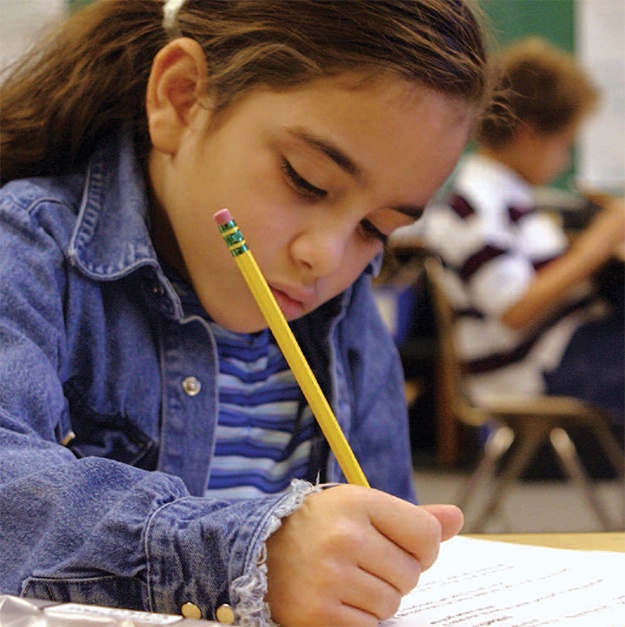Written by Anna Cockerille
Information writing is one of those topics that can seem, on the outset, rather dull. For many teachers, the genre conjures up their own school projects from decades past, projects involving research reports on assigned topics, stacks of note-cards, one confusing, fact-packed tome after another without much related (or relatable) information.
What has surprised and delighted many educators who witness information writing in action in a writing workshop is that for kids, it is anything but dull. A key distinction: when kids get to choose topics of personal expertise about which to write, their writing simply comes alive. We cannot stress enough: if you’d like your students to write lively, voice-filled, high-volume information books, and to stay motivated and engaged throughout the unit, let them choose their topics. Even if you choose an umbrella topic, say, animals, and they each get to choose their favorite animal to write about, let them choose.
As a class, study favorite published information books and talk about what makes those books great. It often doesn’t take a lot of teacher help for students to notice that great information books have:
- Amazing facts the captivate the reader
- A beginning that draws readers in and makes them want to learn more
- Clever use of text features to teach certain kinds of information
- Information that is organized by topic
- Other kinds of writing tucked in, like stories, that help readers learn more
- Ways to teach the lingo of the topic, like bolded vocabulary words and a glossary
- A memorable ending that might leave the reader with some strong feelings about the topic, or that might encourage the reader to take action
Then, you can help students to see that most of these characteristics fit within one of two main categories, structure and elaboration. Students’ observations instantly become a checklist they can use to lift the level of their own writing:
| Qualities of Great Information Writing Structure
Elaboration
|
Rehearsal for writing is just so lovely in an information writing unit. Gather students into clusters of 3-4, and have each teach their little group all they know about their topic. They’ll amaze you and each other with how much they know. And then, have them pour all of the great information they just taught into their writing.
At this week’s @TCRWP Twitter Chat, staff developers Jen DeSutter, Anna Sheehan, and Valerie Geshwind will be on hand to discuss ways to get your 1-3 grade students to write well about information. Don’t miss what is sure to be a lively, inspiring chat. As always, bring your questions, observations, anecdotes, and photos.
♦ ♦ ♦ ♦
Each Wednesday night at 7:30pm eastern, The Teacher's College Reading and Writing Project hosts a Twitter chat using the hashtag #TCRWP. Join @JenDeSutter, @AnnaSheehan627, and @ValGeshwind to chat about getting students to write well about information (grades 1-3) tomorrow evening.
♦ ♦ ♦ ♦
Not on Twitter? Take Heinemann’s free Twitter for Educators course here.
 Anna Cockerille, Coauthor of Bringing History to Life (Grade 4) in the Units of Study for Teaching Writing Series.
Anna Cockerille, Coauthor of Bringing History to Life (Grade 4) in the Units of Study for Teaching Writing Series.
Anna was a teacher and a literacy coach in New York City and in Sydney, Australia, and later became a Staff Developer and Writer at TCRWP. She served as an adjunct instructor in the Literacy Specialist Program at Teachers College, and taught at several TCRWP institutes, including the Content Literacy Institute, where she helped participants bring strong literacy instruction into social studies classrooms. Anna also has been a researcher for Lucy Calkins, contributing especially to Pathways to the Common Core: Accelerating Achievement (Heinemann 2012), and Navigating Nonfiction in the Units of Study for Teaching Reading, Grades 3–5 series (Heinemann 2010). Most recently, Anna served as an editor for the Units of Study for Teaching Reading, K–5 series.



